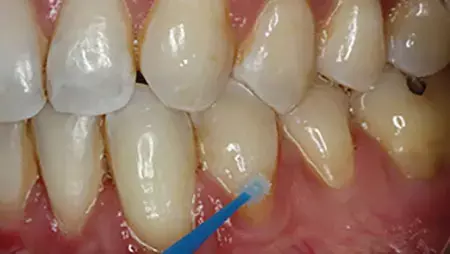- Home
- Medical news & Guidelines
- Anesthesiology
- Cardiology and CTVS
- Critical Care
- Dentistry
- Dermatology
- Diabetes and Endocrinology
- ENT
- Gastroenterology
- Medicine
- Nephrology
- Neurology
- Obstretics-Gynaecology
- Oncology
- Ophthalmology
- Orthopaedics
- Pediatrics-Neonatology
- Psychiatry
- Pulmonology
- Radiology
- Surgery
- Urology
- Laboratory Medicine
- Diet
- Nursing
- Paramedical
- Physiotherapy
- Health news
- Fact Check
- Bone Health Fact Check
- Brain Health Fact Check
- Cancer Related Fact Check
- Child Care Fact Check
- Dental and oral health fact check
- Diabetes and metabolic health fact check
- Diet and Nutrition Fact Check
- Eye and ENT Care Fact Check
- Fitness fact check
- Gut health fact check
- Heart health fact check
- Kidney health fact check
- Medical education fact check
- Men's health fact check
- Respiratory fact check
- Skin and hair care fact check
- Vaccine and Immunization fact check
- Women's health fact check
- AYUSH
- State News
- Andaman and Nicobar Islands
- Andhra Pradesh
- Arunachal Pradesh
- Assam
- Bihar
- Chandigarh
- Chattisgarh
- Dadra and Nagar Haveli
- Daman and Diu
- Delhi
- Goa
- Gujarat
- Haryana
- Himachal Pradesh
- Jammu & Kashmir
- Jharkhand
- Karnataka
- Kerala
- Ladakh
- Lakshadweep
- Madhya Pradesh
- Maharashtra
- Manipur
- Meghalaya
- Mizoram
- Nagaland
- Odisha
- Puducherry
- Punjab
- Rajasthan
- Sikkim
- Tamil Nadu
- Telangana
- Tripura
- Uttar Pradesh
- Uttrakhand
- West Bengal
- Medical Education
- Industry
Glutaraldehyde-based desensitizer may not reduce postoperative sensitivity in bulk-fill posterior composite restorations

Glutaraldehyde-based desensitizer may not reduce postoperative sensitivity in in bulk-fill posterior composite restorations suggests a new study published in the Dental Materials.
A study was done to evaluate the influence of a glutaraldehyde-based desensitizer (GL) on postoperative sensitivity (POS) in posterior bulk-fill resin composite restorations using an adhesive applied in the self-etch (SE) and etch-and-rinse (ER) strategies; and to assess the clinical performance of the restorations.
Posterior resin composite restorations (n = 228) at least 3 mm deep were inserted in 57 subjects using a split-mouth design. The adhesive was applied with/without prior application of a GL. A resin composite was used for all restorations. Spontaneous POS (risk and intensity), as well as POS caused by stimulation with an air blast and assess the response to horizontal and vertical percussion was assessed using two scales in the baseline and after 7, 14, and 30 days. In addition, some parameters were evaluated using FDI criteria up to 24 months of clinical service.
Results
No significant POS was observed (p > 0.05). A higher absolute risk and intensity of spontaneous POS was observed within 7 days (35.1%), without statistically significant differences among groups. At 24 months 5 restorations were considered clinically unsatisfactory, and 73 restorations showed minor discrepancies in adaptation, with no significant differences between groups (p > 0.05).
A GL agent does not influence POS in posterior restorations with bulk-fill resin composite. It may be considered a dispensable clinical step in the restorative protocol.
Keywords: Clinical trial; Dental restoration; Permanent; Dentin sensitivity; Composite resin
Reference:
Taíse Alessandra Hanzen, Alexandra Mara de Paula, Eduardo Grokoski, Isabelle Lins Macêdo de Oliveira, Luis Alfonso Arana-Gordillo, Gabriela Queiroz de Melo Monteiro, Jorge Perdigão, Alessandro D. Loguercio. Glutaraldehyde-based desensitizer does not influence postoperative sensitivity and clinical performance of posterior restorations: A 24-month randomized clinical trial,
Dental Materials, Volume 39, Issue 10, 2023, Pages 946-956, ISSN 0109-5641, https://doi.org/10.1016/j.dental.2023.08.179.
https://www.sciencedirect.com/science/article/pii/S010956412300372X
Keywords:
Glutaraldehyde-based, desensitizer, reduce, postoperative, sensitivity, bulk-fill, posterior, composite, restorations,Dental Materials, Taíse Alessandra Hanzen, Alexandra Mara de Paula, Eduardo Grokoski, Isabelle Lins Macêdo de Oliveira, Luis Alfonso Arana-Gordillo, Gabriela Queiroz de Melo Monteiro, Jorge Perdigão, Alessandro D
Dr. Shravani Dali has completed her BDS from Pravara institute of medical sciences, loni. Following which she extensively worked in the healthcare sector for 2+ years. She has been actively involved in writing blogs in field of health and wellness. Currently she is pursuing her Masters of public health-health administration from Tata institute of social sciences. She can be contacted at editorial@medicaldialogues.in.
Dr Kamal Kant Kohli-MBBS, DTCD- a chest specialist with more than 30 years of practice and a flair for writing clinical articles, Dr Kamal Kant Kohli joined Medical Dialogues as a Chief Editor of Medical News. Besides writing articles, as an editor, he proofreads and verifies all the medical content published on Medical Dialogues including those coming from journals, studies,medical conferences,guidelines etc. Email: drkohli@medicaldialogues.in. Contact no. 011-43720751


